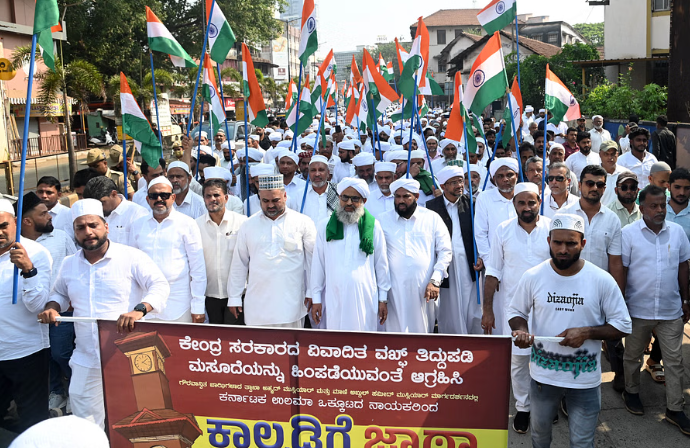
New Delhi: The Lok Sabha passed the Waqf (Amendment) Bill, 2025, in the early hours of Thursday after an intense 12-hour debate. The bill, introduced by the Narendra Modi-led government, aims to amend existing laws governing Muslim endowments—valued at over ₹1.16 lakh crore—by restructuring waqf boards and expanding government oversight.
The proposed law seeks to allow non-Muslims on waqf boards and grants the government greater authority in verifying land ownership. The ruling Bharatiya Janata Party (BJP) argues that these amendments to the 1995 Waqf Act will help curb corruption, improve governance, and promote inclusivity in the management of waqf properties.
However, the bill has drawn sharp criticism from opposition parties and Muslim organizations, who fear that it could jeopardize waqf properties, including historic mosques, shrines, graveyards, and commercial establishments. Many of these properties, donated over centuries, lack formal legal documentation, making them susceptible to legal disputes, encroachments, or even government takeovers.
During the heated parliamentary session, the Congress-led opposition slammed the bill as unconstitutional and discriminatory. Despite lacking a majority in the Lok Sabha, the BJP secured enough support from allies to pass the bill, with 288 votes in favor and 232 against.
The bill has now moved to the Rajya Sabha for further debate. If passed, it will require the assent of President Droupadi Murmu before becoming law.
One of the most contentious aspects of the bill relates to ownership verification. Many Muslim endowments were established centuries ago without formal legal documentation, and critics argue that the new amendments could lead to increased government interference in their management.
Muslim organizations and opposition leaders see the bill as yet another attempt by the government to exert control over religious institutions, particularly at a time when incidents of hostility towards the community have been on the rise. Waqf properties in India cover nearly one million acres—equivalent to twice the size of Mauritius—and are currently managed by 32 state and union territory waqf boards, which have historically been overseen exclusively by Muslims.
The proposed inclusion of non-Muslims on waqf boards has raised concerns over a possible dilution of Muslim authority in managing endowment properties. Critics argue that this move could pave the way for further disputes and weaken the autonomy of waqf institutions across the country.
